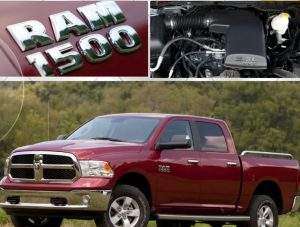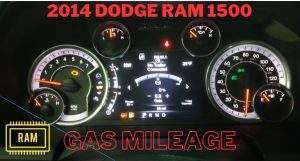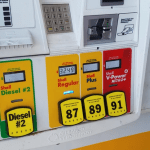Are you struggling to get the most out of your Ford V10 gas mileage? You’re not alone. Many Ford V10 owners find it challenging to maintain their fuel efficiency over time.
Fortunately, there are steps you can take to improve your gas mileage and extend the lifespan of your engine.
In this article, we’ll cover everything you need to know about Ford V10 gas mileage, including tips, improvements, and common problems to look out for.
Table of Contents
Ford V10 Gas Mileage
The Ford V10 gas mileage varies depending on the model and vehicle type. On average, the Ford V10 gas mileage is around 10-13 miles per gallon for city driving and 13-15 miles per gallon for highway driving.
| Model | City MPG | Highway MPG |
|---|---|---|
| Ford F-250 Super Duty | 9 mpg | 13 mpg |
| Ford F-350 Super Duty | 9 mpg | 13 mpg |
| Ford F-450 Super Duty | 8 mpg | 10 mpg |
| Ford F-550 Super Duty | 8 mpg | 10 mpg |
| Ford Excursion | 10 mpg | 13 mpg |
| Ford E-350 Econoline | 10 mpg | 13 mpg |
| Ford E-450 Econoline | 8 mpg | 10 mpg |
| Ford Motorhome | 7-8 mpg | 9-10 mpg |
Comparing Ford V10 Gas Mileage to Other Models
To get a better idea of how the Ford V10 engine compares to other models, we’ve put together a table comparing the gas mileage of different engines. All the vehicles listed below are in the same weight class and have similar towing capacities.
| Vehicle Model | Engine Type | Gas Mileage |
|---|---|---|
| Ford F-250 | V8 | 14-17 MPG |
| Ford F-250 | V10 | 10-13 MPG |
| Chevrolet Silverado 2500HD | V8 | 13-17 MPG |
| Dodge Ram 2500 | V8 | 12-16 MPG |
| GMC Sierra 2500HD | V8 | 13-17 MPG |
| Toyota Tundra | V8 | 13-17 MPG |
| Nissan Titan | V8 | 14-18 MPG |
As you can see, the Ford V10 engine gets slightly lower gas mileage than some of its competitors. However, it’s worth noting that the V10 engine provides much more power and torque than these engines.
Ford v10 gas mileage improvement: How?
Improving the gas mileage of your Ford V10 engine can save you money and reduce your carbon footprint. Here are some tips and tricks to help you increase fuel efficiency:
- Reduce speed and avoid sudden accelerations
- Avoid unnecessary idling
- Use cruise control on highways
- Keep tires inflated to the recommended level
- Use the correct motor oil
- Replace air filters regularly
- Reduce vehicle weight
- Avoid carrying heavy loads
- Combine errands to reduce trips
- The octane level suggested for your engine’s optimal performance should be utilized.
By implementing these changes, you can see a significant improvement in your Ford V10 gas mileage.
Understanding the Ford 6.8 V10 Gas or Diesel
The Ford V10 engine is available in both gas and diesel versions, but what is the difference between the two?
Overview of the Differences between Gas and Diesel Engines
Diesel engines are known for their high torque and fuel efficiency, while gas engines are known for their power and performance.
Diesel engines are more expensive than gas engines, but they last longer and require less maintenance.
Gas engines, on the other hand, are cheaper and easier to maintain, but they have lower fuel efficiency.
Comparison of the Ford 6.8 V10 Gas or Diesel
Here is a comparison of the gas and diesel Ford V10 engines:
| Gas Engine | Diesel Engine | |
|---|---|---|
| Fuel Type | Gasoline | Diesel |
| Torque | 424 lb-ft | 457 lb-ft |
| Horsepower | 320 hp | 350 hp |
| Towing Capacity | 18,500 lbs | 21,500 lbs |
| Fuel Efficiency | 10-15 mpg | 12-16 mpg |
| Maintenance | Less maintenance required | More maintenance required |
| Cost | Lower initial cost | Higher initial cost |
As you can see, there are some notable differences between the gas and diesel Ford V10 engines. The diesel engine has higher torque, horsepower, and towing capacity, but it also requires more maintenance and has a higher initial cost.
Pros and Cons of Each Engine Type
Now that we have compared the gas and diesel Ford V10 engines, let’s take a look at the pros and cons of each engine type.
Gas Engine Pros & Cons:
| Pros | Cons |
|---|---|
| Less expensive than diesel engines | Less fuel-efficient than diesel engines |
| Require less maintenance than diesel engines | Less torque than diesel engines |
| Quieter and smoother ride |
Diesel Engine Pros:
| Pros | Cons |
|---|---|
| More fuel-efficient than gas engines | More expensive than gas engines |
| More torque than gas engines | Require more maintenance than gas engines |
| Better for towing and hauling heavy loads | Louder and less smooth ride than gas engines |
Common Problems Affecting Ford V10 Gas Mileage
There are several common issues that can impact the fuel efficiency of a Ford V10 engine. Below are some frequently encountered issues:
- Dirty Air Filter – A dirty air filter can restrict airflow to the engine, which can lead to decreased fuel efficiency. It is suggested to replace the air filter after every 12,000 to 15,000 miles driven.
- Faulty Oxygen Sensor – The oxygen sensor measures the amount of oxygen in the exhaust gases and sends a signal to the engine’s computer to adjust the fuel-to-air ratio. A faulty oxygen sensor can cause the engine to run rich, which can decrease fuel efficiency.
- Bad Spark Plugs – Spark plugs ignite the fuel in the engine, and if they are not functioning properly, the engine may misfire, which can lead to decreased fuel efficiency. It is advisable to change the spark plugs every 30,000 miles.
- Low Tire Pressure – Underinflated tires can increase rolling resistance, which can decrease fuel efficiency. It is recommended to check tire pressure regularly and inflate to the manufacturer’s recommended levels.
- Clogged Fuel Injectors – Fuel injectors can become clogged with dirt and debris, which can affect their ability to spray fuel into the engine. This can cause the engine to run lean, which can decrease fuel efficiency.
Ways to Identify and Fix These Problems
If you are experiencing decreased fuel efficiency in your Ford V10 engine, here are some ways to identify and fix these common problems:
- Inspect the air filter and replace it in case of any dirt accumulation.
- Get the oxygen sensor inspected and replace it if required.
- Replace spark plugs if they are worn or not functioning properly.
- Check tire pressure regularly and inflate to the manufacturer’s recommended levels.
- Use a fuel injector cleaner to remove any dirt and debris from the fuel injectors.
Other Factors Affecting Ford V10 Gas Mileage
Aside from the common problems mentioned above, there are other factors that can affect the fuel efficiency of your Ford V10 engine. These include:
- Driving habits: Aggressive driving, excessive idling, and speeding can decrease fuel efficiency.
- Cargo load: Carrying heavy cargo can put a strain on the engine and decrease fuel efficiency.
- Terrain: Fuel efficiency can be reduced while driving on steep or elevated terrain.
- Fuel quality: Poor-quality fuel can contain contaminants that can affect fuel efficiency.
Can You Convert a Ford V10 Engine to Natural Gas?
Converting a gas engine to natural gas involves replacing the fuel system and installing a new natural gas fuel system.
The new system includes a natural gas tank, fuel lines, injectors, and a regulator. The conversion process can be complex and requires professional installation.
While there are conversion kits available in the market, it is essential to choose a reputable supplier who can provide high-quality parts and installation services.
The potential benefits and drawbacks of conversion
Converting your Ford V10 engine to natural gas can have several benefits, including:
Benefits
- Lower fuel costs: Natural gas is cheaper than gasoline, and you can save up to 50% on fuel expenses after conversion.
- Cleaner emissions: Natural gas burns cleaner than gasoline, reducing your vehicle’s carbon footprint and helping the environment.
- Longer engine life: Natural gas is a cleaner fuel that can extend your engine’s life by reducing wear and tear.
However, there are some drawbacks to consider before deciding to convert your engine:
Drawbacks
- High upfront costs: Converting your engine to natural gas can be expensive, and the cost can vary depending on the supplier and installation services you choose.
- Limited refueling options: Natural gas refueling stations are not as widely available as gasoline stations, so you might need to plan your routes accordingly.
- Reduced power and performance: While natural gas is an excellent fuel for some engines, it might not deliver the same power and performance as gasoline.
Ford V10 Gas Mileage after Conversion
The Ford V10 gas mileage after conversion can vary depending on several factors, including the type of natural gas fuel system installed, the driving conditions, and the vehicle’s weight.
On average, vehicles with natural gas fuel systems can achieve 20-25% better gas mileage than gasoline engines.
This means that your Ford V10 engine could achieve 12-15 miles per gallon after conversion, significantly reducing your fuel costs.
FAQs
- What is the typical fuel efficiency for a Ford V10 engine?
The average gas mileage for a Ford V10 engine is approximately 10-15 miles per gallon. - Can I convert my Ford V10 engine to natural gas?
Yes, it’s possible to convert a Ford V10 engine to natural gas, but it requires specialized equipment and professional installation. - How does weight affect gas mileage?
The more weight your vehicle has to carry, the more fuel it will consume, reducing gas mileage. - What are some common problems that can affect Ford V10 gas mileage?
Some common problems that can affect Ford V10 gas mileage include dirty air filters, clogged fuel injectors, and worn spark plugs. - Can I improve my Ford V10 gas mileage without making any changes to my driving habits?
Yes, regular maintenance can help improve gas mileage without making any changes to your driving habits.








